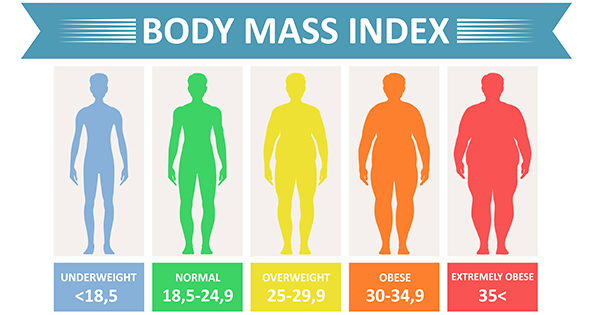Top 10 Myths About BMI You Need to Stop Believing
Body Mass Index (BMI) is one of the most widely used tools to assess whether a person has a healthy body weight. However, despite its popularity, BMI is often misunderstood and surrounded by myths. These misconceptions can lead to confusion, unrealistic expectations, and even unhealthy behaviors. Let’s debunk the top 10 myths about BMI and set the record straight.
1. BMI is an Accurate Measure of Health
Myth: A high or low BMI automatically means you’re unhealthy.
Reality: BMI is a simple calculation based on height and weight, but it doesn’t account for muscle mass, bone density, fat distribution, or overall body composition. For example, athletes with high muscle mass may have a high BMI but be perfectly healthy, while someone with a “normal” BMI could have poor metabolic health.
2. BMI is the Same for Everyone
Myth: BMI applies equally to all individuals, regardless of age, gender, or ethnicity.
Reality: BMI doesn’t consider factors like age, sex, or genetic differences. For instance, older adults tend to lose muscle mass, which can skew BMI results. Additionally, research shows that certain ethnic groups may have different health risks at the same BMI level.
3. BMI Measures Body Fat
Myth: BMI directly measures body fat percentage.
Reality: BMI is a rough estimate and doesn’t distinguish between fat, muscle, or water weight. Two people with the same BMI can have completely different body compositions. Tools like skinfold measurements, bioelectrical impedance, or DEXA scans are better for assessing body fat.
4. A “Normal” BMI Means You’re Fit
Myth: If your BMI falls within the “normal” range (18.5–24.9), you’re automatically fit and healthy.
Reality: A normal BMI doesn’t guarantee good health. Factors like diet, physical activity, stress levels, and underlying medical conditions play a significant role in overall health. You can have a normal BMI and still be at risk for conditions like high cholesterol or diabetes.
5. BMI is the Best Tool for Weight Management
Myth: BMI is the ultimate tool for tracking weight loss or gain.
Reality: While BMI can provide a general idea, it’s not the most accurate tool for weight management. It doesn’t account for changes in muscle mass or fat distribution. Tracking waist circumference, body fat percentage, or even how your clothes fit can be more effective.
6. BMI is Only for Adults
Myth: BMI is equally applicable to children and adults.
Reality: BMI calculations for children and teens are adjusted for age and sex, as their bodies are still developing. Pediatric BMI is interpreted using growth charts, and a high BMI in children doesn’t necessarily mean they’re overweight or unhealthy.
7. A High BMI Always Means You’re Overweight
Myth: If your BMI is above 25, you’re overweight or obese.
Reality: BMI doesn’t differentiate between muscle and fat. Bodybuilders or athletes with high muscle mass often have a BMI in the “overweight” or “obese” range, even though they have low body fat. Context matters when interpreting BMI.
8. BMI is a Reliable Indicator for Athletes
Myth: BMI is a useful tool for athletes and physically active individuals.
Reality: BMI often fails athletes because it doesn’t account for muscle mass. Many athletes have a high BMI due to their muscular build, which doesn’t reflect their actual health or fitness levels.
9. BMI is Outdated and Useless
Myth: BMI is an outdated tool with no practical use.
Reality: While BMI has limitations, it’s still a useful screening tool for population-level health assessments. It’s quick, inexpensive, and can help identify potential weight-related health risks. However, it should be used alongside other metrics for a comprehensive health evaluation.
10. BMI Determines Your Self-Worth
Myth: Your BMI defines your worth or attractiveness.
Reality: BMI is a number, not a measure of your value or beauty. Focusing solely on BMI can lead to unhealthy obsessions with weight and body image. Health is multifaceted, and self-worth should never be tied to a single metric.
Conclusion
BMI is a useful tool, but it’s not a definitive measure of health or fitness. It’s essential to look beyond BMI and consider other factors like body composition, lifestyle, and overall well-being. By understanding the limitations and myths surrounding BMI, you can make more informed decisions about your health and avoid falling into the trap of oversimplified judgments. Remember, health is about balance, not just numbers.
